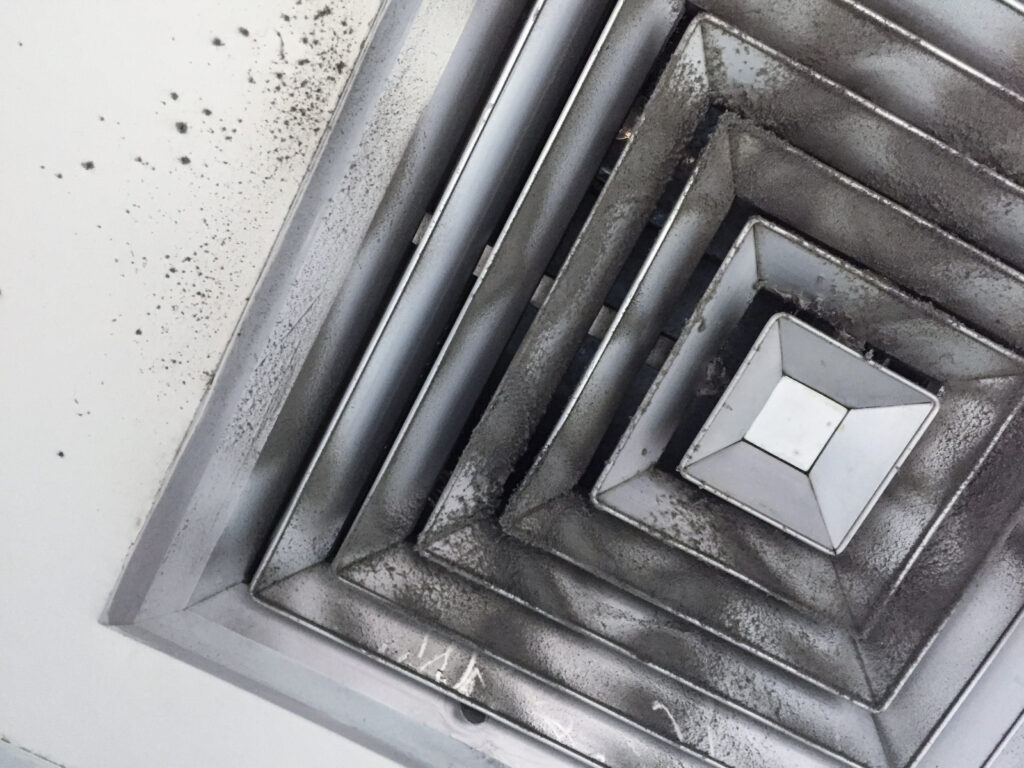Have you ever wondered why your HVAC vents seem to accumulate dust, debris, and allergens over time? Understanding the factors contributing to dirty HVAC vents can help you implement effective strategies to keep your home’s air clean and your HVAC system running smoothly. In this blog post, we’ll explore the reasons why HVAC vents get dirty and provide insights on how to address this common issue.
- Airborne Particles: One of the main reasons HVAC vents get dirty is the presence of airborne particles in your home. Dust, pollen, pet dander, and other allergens can enter your HVAC system through the return air ducts, where they accumulate on vent covers, grilles, and inside ductwork over time.
- Pet Hair and Fur: If you have furry companions at home, their shedding can contribute significantly to dirty HVAC vents. Pet hair and fur can get caught in air filters, ductwork, and vents, leading to clogs and reduced airflow.
- Construction and Renovation: During home construction, remodeling, or renovation projects, dust, debris, and construction materials can enter the HVAC system, causing vents to become dirty. It’s common for drywall dust, insulation particles, and sawdust to circulate through the ductwork and settle in vents.
- Poor Air Filtration: Inadequate or dirty air filters can contribute to dirty vents. When air filters are clogged with dust and debris, they are less effective at capturing airborne particles, allowing more contaminants to pass through and accumulate in vents.
- Humidity and Moisture: High humidity levels or moisture intrusion in ductwork can create an environment for mold and mildew growth. Mold spores can settle in vents and ducts, leading to dirty and potentially contaminated airflow throughout your home.
- Outdoor Pollutants: Outdoor pollutants such as pollen, dust, and pollutants from vehicle emissions can also enter your home’s HVAC system through open windows, doors, and ventilation intakes. These pollutants can contribute to dirty vents and compromised indoor air quality.
- Lack of Maintenance: Neglecting regular HVAC system maintenance, including cleaning and replacing air filters, can result in dirty vents. Without proper maintenance, dust and debris accumulate, leading to reduced system efficiency and potentially costly repairs.
Now that we’ve explored the reasons why HVAC vents get dirty, let’s discuss how to address this issue effectively:
- Regular HVAC Maintenance: Schedule regular maintenance for your HVAC system, including cleaning or replacing air filters, inspecting ductwork for leaks or damage, and cleaning vents and grilles.
- Use High-Quality Air Filters: Invest in high-quality air filters with a MERV (Minimum Efficiency Reporting Value) rating appropriate for your HVAC system. Replace air filters according to manufacturer recommendations or more frequently if needed.
- Keep Indoor Air Clean: Implement measures to reduce indoor air pollutants, such as using air purifiers, minimizing clutter that collects dust, and maintaining a clean and tidy home environment.
- Pet Grooming and Maintenance: Regularly groom and maintain your pets to minimize shedding and reduce the amount of pet hair and dander circulating in your home.
- Monitor Humidity Levels: Keep indoor humidity levels in check to prevent mold and mildew growth. Use dehumidifiers if necessary, especially in humid climates or during humid seasons.
- Professional Duct Cleaning: Consider hiring a professional duct cleaning service to thoroughly clean ductwork, vents, and HVAC components. Professional cleaners have the expertise and equipment to remove accumulated dust, debris, and contaminants effectively.
By understanding the factors contributing to dirty HVAC vents and implementing proactive measures, you can improve indoor air quality, enhance HVAC system performance, and create a cleaner and healthier home environment for you and your family. Regular maintenance, proper filtration, and cleanliness practices are key to addressing dirty vents and ensuring optimal indoor air quality.

